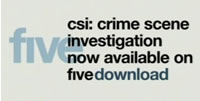 UK Broadcaster Channel Five have launched their Five Download, Video on Demand (VoD), service with US series CSI. They’ve previously offered downloads of the car show, Fifth Gear.
UK Broadcaster Channel Five have launched their Five Download, Video on Demand (VoD), service with US series CSI. They’ve previously offered downloads of the car show, Fifth Gear.
The new service is offering straight CSI: Crime Scene Investigation; CSI: NY and CSI: Miami.
This isn’t Just-Another-VoD-Service (JAVS), as there’s some innovation in here. CSI fans are mad keen on the programme (so we understand) and understanding this, Five is offering the episodes seven days ahead of the TV broadcast date. Fans will pay a premium price for this £2.49 vs the usual £1.49 per episode. We suspect that once hooked on receiving the content early, fans using the service will have to continue paying to stay ahead.
Engaging in some mutual back slapping Jane Lighting, Five’s Chief Executive, said: “I’m delighted that we are launching the service with CSI enabling us to offer the highest quality content to viewers with a viewing window which exceeds anything currently in the marketplace,” to which Ted Riley, Executive Managing Director, International Content Distribution, Alliance Atlantis whooped “The first-ever CSI Franchise VoD service outside the U.S., is both a thrilling proposition for U.K. fans,” adding that it “heralds the roll-out of other new media opportunities for this fantastic franchise internationally.”
One of the challenges for this service, as it is with all others – they’re competing against the same content being available on file sharing networks near-instantly available after they’ve been shown in the US – yonks before they hits the UK. Fanatical fan’s will more than likely not wait for the legitimate source and go the file-sharing route. The fact that the programmes won’t cost them anything will be incidental.
Five will be charging either £1.49 or £2.49 per download which we think it pretty steep given the episodes are only available for 14 days and is restricted to one computer. If you’re impudent enough to try the content that you’ve paid for on another machine, you’ll be completely locked out of that content.
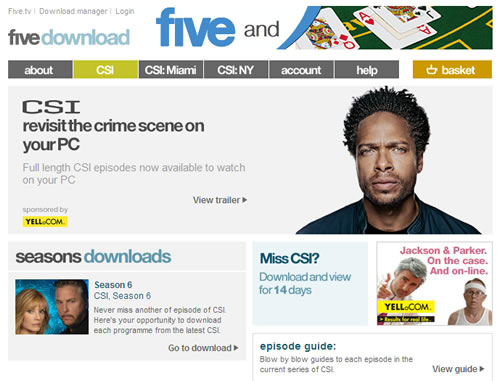
To use the service you’ll need to download and install the Five Download Manager and Player which has been provided to them by BT Media & Broadcast, but the base level technology is from Entriq. Entriq’s MediaSphere is used by other companies such as BT Vision and with download services.
As Five are using Microsoft’s DRM, the service is only available to those in the UK who run Windows XP or 2000 and browse through Microsoft Internet Explorer 6.0 and enable ActiveX. Users of Windows XP must use Windows Media Player 10 and 2K users must use Windows Media Player 9.
Microsoft has steadfastly not introduced their latest DRM on the Macintosh, so they’re excluded.
Those of you lucky/unlucky enough to not have the above, can still view the trailers (well we could on a Mac anyway).
 Some MP’s are trying to create brouhaha (fuss) about a spoof video put out by labour MP Sion Simon mocking the first video of Conservative party leader, David Cameron on his Webcameraon site.
Some MP’s are trying to create brouhaha (fuss) about a spoof video put out by labour MP Sion Simon mocking the first video of Conservative party leader, David Cameron on his Webcameraon site.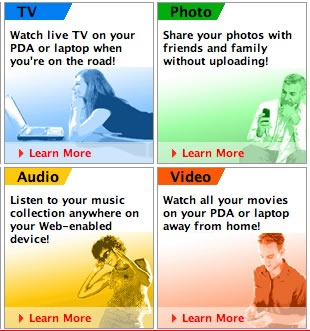 Orb MyCasting has been grabbed by Nokia to be bundled in with the Nokia N80 Internet Edition, in the US only.
Orb MyCasting has been grabbed by Nokia to be bundled in with the Nokia N80 Internet Edition, in the US only. BBC Director-General Mark Thompson is back on again trying to justify to the British government why the BBC should be allowed to increase their licence fee above the Retail Price Index (
BBC Director-General Mark Thompson is back on again trying to justify to the British government why the BBC should be allowed to increase their licence fee above the Retail Price Index (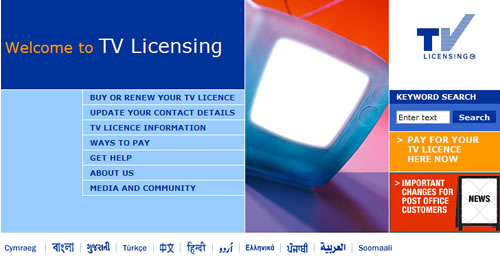
 Carphone Warehouse have jumped into the big boy broadband rankings with its acquisition of the UK’s third-largest Internet provider, AOL UK.
Carphone Warehouse have jumped into the big boy broadband rankings with its acquisition of the UK’s third-largest Internet provider, AOL UK. Retaining AOL UK’s management and infrastructure, Carphone Warehouse said that it’s funding the acquisition of its shiny new toy through an extension of its existing debt facilities.
Retaining AOL UK’s management and infrastructure, Carphone Warehouse said that it’s funding the acquisition of its shiny new toy through an extension of its existing debt facilities. “The joint development of AOL’s already successful audience platform will bring us new advertising and content revenues in a proven and low risk manner,” he added.
“The joint development of AOL’s already successful audience platform will bring us new advertising and content revenues in a proven and low risk manner,” he added. As we\\’d
As we\\’d 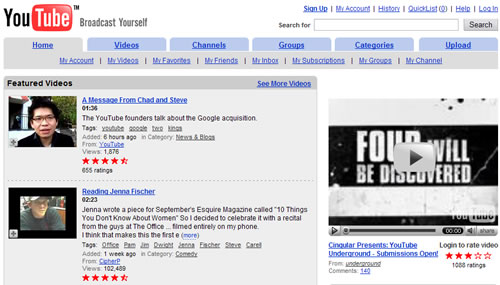
 In true online video blog style, the announcement was made by Mr Diddy (not one of
In true online video blog style, the announcement was made by Mr Diddy (not one of  Details of the deal between Mr Diddy and Burger King haven’t been disclosed, but we’d imagine that it’s going to be worth more that a couple of orders at their stores, even if his entourage are ordering large.
Details of the deal between Mr Diddy and Burger King haven’t been disclosed, but we’d imagine that it’s going to be worth more that a couple of orders at their stores, even if his entourage are ordering large. We attribute much of Mr Diddy’s knowledge and acceptance of YouTube down to
We attribute much of Mr Diddy’s knowledge and acceptance of YouTube down to  Vonage have launched a new means of making VoIP calls on you PC – a USB stick with headphone socket.
Vonage have launched a new means of making VoIP calls on you PC – a USB stick with headphone socket. A few week back, BT confirmed that they have closely tied themselves with US podcast aggregator, PodShow, so closely in fact, that they’ve stuck BT at the front of PodShow domain to form BTPodShow.
A few week back, BT confirmed that they have closely tied themselves with US podcast aggregator, PodShow, so closely in fact, that they’ve stuck BT at the front of PodShow domain to form BTPodShow. Where does the income come from?
Where does the income come from?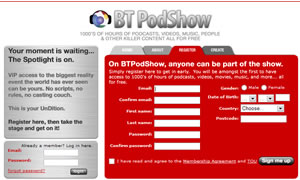 We wondered if the higher resolution video might not be put out on the Website, but reserved for BTVision, to which Patterson said, “The experience that people have over the Internet will not be sufficient for the TV space. I anticipate it will happen.”
We wondered if the higher resolution video might not be put out on the Website, but reserved for BTVision, to which Patterson said, “The experience that people have over the Internet will not be sufficient for the TV space. I anticipate it will happen.” Ofcom has announced that Ed Richards is taking over the uber-communications agency CEO reigns, effective today.
Ofcom has announced that Ed Richards is taking over the uber-communications agency CEO reigns, effective today. * Ensuring that Ofcom’s voice is heard on key issues. Ofcom to its credit, tend to think and act in an evidence-based manner, but are surrounded by a regulatory environment which is highly politicised. This has been particularly true in both the media and new media, an area where Stephen Carter’s Ofcom often produced good thinking, but was unable to translate that into actual policy (eg, BBC charter review). Richards comes from the political world, and this might benefit Ofcom in that respect.
* Ensuring that Ofcom’s voice is heard on key issues. Ofcom to its credit, tend to think and act in an evidence-based manner, but are surrounded by a regulatory environment which is highly politicised. This has been particularly true in both the media and new media, an area where Stephen Carter’s Ofcom often produced good thinking, but was unable to translate that into actual policy (eg, BBC charter review). Richards comes from the political world, and this might benefit Ofcom in that respect.